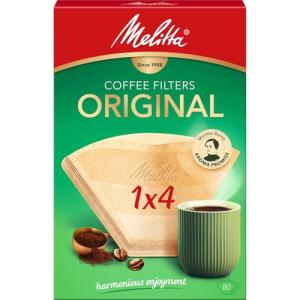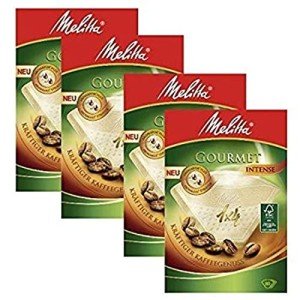Coffee has solidified its place as a staple beverage in both personal and professional environments. For coffee shops, offices, and restaurants, brewing high-quality coffee consistently requires not just skill but also the right equipment and supplies. Among these supplies, paper coffee filters play a crucial role. This guide delves into the importance of 200 paper coffee filters for commercial machines, the types available, their benefits, and frequently asked questions related to their use.
The Role of Paper Coffee Filters in Commercial Machines
In commercial settings, coffee is produced in larger quantities, necessitating the use of brewing machines designed for high volume service. Paper filters serve several key functions in these machines:
-
Filtration: The primary role of coffee filters is to separate coffee grounds from brewed coffee. High-quality paper filters ensure that the coffee is free of gritty residue, delivering a cleaner taste.
-
Flavor Calibration: Different types of filters can influence the flavor profile of the coffee. Some filters are designed to absorb oils and micro-particles, which can enhance or mellow certain tasting notes.
-
Consistency: Using commercial-grade paper filters enables coffee brewers to maintain consistent flavor and strength in each batch, which is essential for customer satisfaction and brand reputation.
-
Convenience: Paper filters are disposable, which makes cleaning and maintenance of commercial coffee machines simpler and quicker.
Types of Paper Coffee Filters
When it comes to using paper filters in commercial coffee machines, there are various types available, each suited for different brewing systems and coffee types. Here are some popular options:
-
Cone-Shaped Filters: Perfect for drip coffee makers, these filters allow for optimal flow of hot water through coffee grounds. They can fit various brewer sizes.
-
Flat-Bottom Filters: These filters suit most commercial machines. They provide a uniform surface area for coffee grounds, promoting even extraction.
-
Bleached vs. Unbleached:
- Bleached Filters: Treated with a bleaching agent to produce a white color. They can impart a neutral flavor to coffee.
- Unbleached Filters: Made from natural brown paper, unbleached filters are often preferred by those seeking a more eco-friendly option, along with a slight taste profile difference.
Benefits of Using 200 Paper Coffee Filters
Keeping a sufficient stock of approximately 200 paper coffee filters ensures that a commercial coffee setup runs smoothly. Here are some notable benefits:
-
Bulk Supply: Ordering filters in bulk provides convenience and helps manage operational costs. Buyers can often save money per unit, reducing overall expenditure.
-
Reduced Waste: With enough filters on hand, businesses can reduce the risk of running out mid-service, which could lead to wasted time and potential loss of sales.
-
Quality Assurance: Establishing a routine with a trusted brand helps ensure that the coffee brewed remains of high quality. Not all filters are created equal; reliable brands guarantee consistency.
-
Flexibility: Having various types of filters allows establishments to experiment with different brewing methods, adapting to customer preferences or seasonal coffee selections.
-
Enhanced Service: With a well-stocked supply of filters, coffee shops and restaurants can maintain service efficiency during peak hours, ensuring customers receive their drinks on time.
Best Practices for Using Paper Coffee Filters
To maximize the efficacy of paper coffee filters in commercial machines, consider the following best practices:
-
Pre-Wet Filters: Rinsing paper filters with hot water before use can help eliminate any residual paper taste and ensure better flavor extraction.
-
Use Fresh Filters: Always utilize fresh filters for each brewing cycle. Old or stored filters may lose their effectiveness, potentially impacting the quality of the coffee.
-
Store Properly: Keep filters in a cool, dry area away from odors to avoid contamination. Proper storage extends the life and effectiveness of the filters.
-
Choose Quality Brands: Invest in reputable brands known for their durability and filtration capabilities. The initial investment will pay off through better-tasting coffee and reduced machine maintenance.
Frequently Asked Questions (FAQs)
1. How long can I store paper coffee filters before they go bad?
Paper coffee filters have a long shelf-life. When stored in a cool, dry place, they can last for several months. However, for the best taste and quality, it's advisable to use them within a year of purchase.
2. Can I reuse paper coffee filters?
While some might consider rinsing and reusing paper filters, it's best to use each filter once. Reusing filters not only reduces the quality of the brewed coffee but can also contaminate subsequent batches.
3. Will different types of filters affect the taste of my coffee?
Yes, the type of filter can influence the flavor of the coffee. For example, unbleached filters can absorb some of the essential oils, affecting the coffee's richness. Experimenting with different filters may help you find the desired taste profile.
4. How many filters do commercial coffee makers typically require per week?
The number of filters required depends on the coffee shop's customer volume, the size of the brews, and the number of coffee types served. On average, a busy coffee shop may use 200 filters or more in a week.
5. Are there eco-friendly paper coffee filters available?
Yes, many companies now offer unbleached and biodegradable paper coffee filters that appeal to environmentally conscious consumers. These options effectively serve the same purpose while minimizing environmental impact.
In conclusion, the importance of having a stock of 200 paper coffee filters for commercial coffee machines cannot be overstated. From ensuring consistency in taste to offering operational convenience, these filters are essential for any establishment that serves coffee daily. By choosing the right type, understanding best practices, and considering customer preferences, coffee businesses can enhance their service quality, ensuring customer satisfaction and loyalty.






